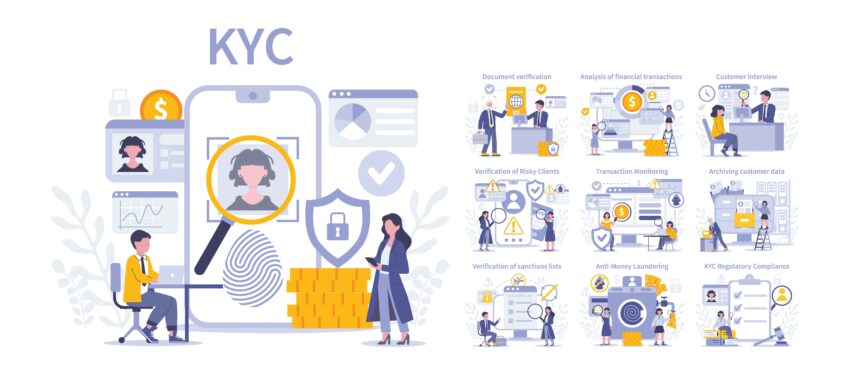Customer verification has become one of the biggest challenges facing Indian businesses today. From banks to fintech startups, companies spend countless hours and resources on Know Your Customer (KYC) processes. The good news is that CKYC solutions are changing this landscape entirely.
What Are CKYC Solutions?
CKYC stands for Central Know Your Customer. These systems allow businesses to share customer verification data through a central database managed by the CERSAI. Instead of each company conducting separate KYC checks, they can access verified information that has already been collected and approved.
Think of it as a shared digital filing cabinet. Once a customer’s identity is verified by one authorised institution, other companies can access this information instantly which eliminates the need for customers to submit the same Aadhaar cards, PAN cards, and utility bills repeatedly.
The Traditional KYC Problem
Before CKYC solutions existed, every financial institution had its own verification process. Indian customers faced several frustrating issues:
Repetitive Documentation: Opening a new bank account meant providing the same Aadhaar card, PAN card, and address proof again. Even when moving between branches of the same bank, customers often had to repeat the entire process.
Long Waiting Times: Manual verification could take days or even weeks. Customers would submit documents and then wait for phone calls or emails confirming their approval.
Inconsistent Requirements: Different institutions asked for different documents. What worked for one bank might not be acceptable to another NBFC or mutual fund company.
Higher Costs: Each company maintained its own KYC team and systems. This created unnecessary duplication across the entire financial sector.
How CKYC Solutions Work
Modern CKYC solutions operate through secure digital platforms connected to the CERSAI database. Here’s how the process typically works:
Initial Verification: A customer completes their first KYC check with an RBI-registered institution. This includes Aadhaar verification, PAN validation, and address confirmation through approved documents.
Digital Storage: All verified information is stored securely in the central database. The system assigns a unique KYC Identifier (KID) to each customer.
Instant Access: When the customer approaches a new service provider, they can grant permission to access their existing KYC data using their KID. The new company receives verified information within minutes rather than days.
Regular Updates: The system automatically updates information when customers move house or change personal details. This keeps all connected institutions informed.
Benefits for Indian Businesses
CKYC solutions offer significant advantages for companies across various sectors:
Reduced Costs: Businesses no longer need large KYC teams or expensive verification systems. They can access reliable customer data through existing platforms, reducing operational costs by up to 60%.
Faster Onboarding: New customers can be approved within hours rather than days. This improves conversion rates and customer satisfaction scores significantly.
Better Compliance: Centralised KYC ensures consistent standards across all participating institutions. RBI and SEBI compliance becomes more straightforward and reliable.
Enhanced Security: Professional CKYC solutions use advanced encryption and security protocols. Customer data is often more secure than in individual company systems.
Customer Experience Improvements
From a customer perspective, CKYC solutions solve many long-standing frustrations:
One-Time Documentation: Customers only need to provide Aadhaar, PAN, and address proof once. Future applications become much simpler and faster.
Reduced Paperwork: Digital systems eliminate the need for physical document submission in most cases. This is highly beneficial in tier-2 and tier-3 cities where document collection can be challenging.
Quicker Decisions: Instant access to verified information means faster approval decisions for loans, trading accounts, and other financial products.
Better Control: Customers can see which companies have accessed their information and manage their permissions accordingly through the KID system.
Implementation Challenges
Despite their benefits, CKYC solutions do face some implementation hurdles in India:
Digital Literacy: Some customers, particularly in rural areas, may need guidance on using digital KYC systems.
System Integration: Existing company systems need updating to connect with CERSAI’s CKYC platform. It requires technical investment and staff training.
Language Barriers: CKYC solutions must accommodate India’s linguistic diversity while maintaining efficiency across different regions.
The Future of Customer Verification
The adoption of CKYC solutions is accelerating across the Indian financial sector. Artificial intelligence is also enhancing these systems since it can spot fraudulent documents more effectively than manual processes. It can also identify suspicious patterns across the entire customer database which helps prevent fraud across multiple institutions.
Digital India initiatives are supporting this transformation. Verification becomes even seamless because of integration with Aadhaar, DigiLocker, and other government platforms.
Success Stories
Several Indian institutions have already benefited from CKYC solutions. Leading banks report 70% reduction in customer onboarding time. Mutual fund companies have seen 50% improvement in application completion rates.
Conclusion:
CKYC solutions are a major step forward for Indian businesses. While these solutions mean lower costs and improved security, they also help improve customer experience. Besides that, they also support the government’s digital transformation goals.
As these systems become more widespread, companies that embrace centralised KYC will gain competitive advantages in customer acquisition and satisfaction.
The technology is proven, the benefits are clear, and the regulatory environment is supportive. Businesses that are still relying on traditional KYC processes must explore CKYC solutions.

